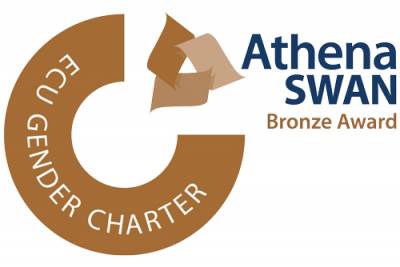26-27 January 2015
University College London
A two-day colloquium to be held at University College London, 26-27 January 2015 (Monday afternoon-Tuesday morning).
Venue: Gordon House G09 (The Otto Skutsch Room)
The aim of the proposed workshop is to explore new directions for possible collaborative research on the theme of antiquarianism in the late Roman Republic and early Principate. Through a cross-disciplinary approach, which includes fields such as philology, art history, religious studies, Latin literature, and intellectual history, the workshop aims to investigate the functions fulfilled by antiquarianism at the end of the first century BC. Differing from ancient historiography, a genre characterised by the search for literary elegance as well as didactic, moral and/or practical aims, antiquarianism represents a diverse body of writing, often in learned treatises with a descriptive rather than chronological structure, which reports documents and argues about their interpretation.
This form of erudite knowledge was not a mere reflection of Roman conservative traditionalism, which attempted to preserve a past no longer recoverable. Rather, it had a radical effect on the perception of Roman identity and the formulation of Roman identity.
It follows that this workshop aims to explore the works of antiquarians such as Aelius Stilo, Varro, and Verrius Flaccus as well as Festus not only as a cultural product of the time, but rather as agents who created the image of Roman (Republican) identity for their contemporaries as well as for us. As Cicero famously stated, Varro taught the Romans, who previously wandered as strangers in their city, who and where they were. By discussing the precise age of their country, the calendar system it used, the religious rules governing rites and their priests, the discipline at time of peace and war, antiquarian studies provided the Romans with 'the names, kinds, functions and origins of everything divine and human' - and, in the process, as John North has shown, constructed a picture of moral and religious decline for us.
Reconstructing the intellectual debates of the time, which also included discussions on the origin of Roman 'civilisation' (such as the Roman revision of Dicaearchus' three stages of civilisation), this workshop aims to investigate the dynamics through which a Roman sense of identity and tradition was constructed as well as the ways in which such an image functioned within the transformation from the Republic to the Principate. By providing a sense of continuity of identity at a time of profound change, this construction of Roman identity enabled Roman politicians to legitimise innovative responses to new circumstances demanded by their changing society.
One of the objectives of the workshop will be to prepare the ground for a new extended collaborative research grant application, which would focus on Roman antiquarian works, giving centrality to Varro within the antiquarian tradition of the time (there are no English translations of, or commentaries on, either his Antiquitates rerum humanarum et divinarum or his de vita populi Romani).
There is no attendance fee, but spaces are limited. Please register here
This event is being co-organized by the Department of History and Department of Greek and Latin, and generously sponsored by the Institut Français and University College London.
For further information please contact Valentina Arena or Fiachra Mac Góráin
Programme
Monday 26 January
13.30
Coffee/Tea
13.50-14.00
Welcome
Valentina Arena, Fiachra Mac Góráin
Peter Delves (UCL) also on behalf of the Institut Français
14.00-15.30
Panel 1, Varro and the Gods
Chair: Valentina Arena
Yves Lehmann (University of Strasbourg): 'Tradition and innovation in Varro's theological system'
Duncan MacRae (University of Cincinnati): 'Paper Pagans: Tertullian and Augustine read Varro'
15.30-16.00
Coffee/Tea
16.00-17.30
Panel 2, Varro reconstructed
Chair: Fiachra Mac Góráin
Richard Marshall (Oxford University): 'Varro, Atticus, and Annales'
Daniel Vallat (Université Lumière Lyon 2): 'The transmission of Varro in Virgil commentaries'
17.30-18.30
Reception
Tuesday 27 January
9.00-9.30
Coffee/tea
9.30-11.00
Panel 3, Varro and the past
Chair: Christopher Smith
Giorgio Piras (Sapienza University, Rome): '"Dicam dumtaxat quod est historicon": Varro and/on the past'
Diana Spencer (Birmingham University): 'Telling time in Varro's de Lingua Latina: it's not all about tenses'
11.00-11.30
Coffee/Tea
11.30-12.15
Panel 4, Varro and his reading
Chair: Gesine Manuwald
Wolfang de Melo (Oxford University): 'How Varro read ancient documents: what errors of interpretation can tell us'
12.15-13.00
Round table discussion: Towards an edition of Varro's antiquarian works
Chair: Valentina Arena
13.00-14.00
Lunch
 Close
Close



